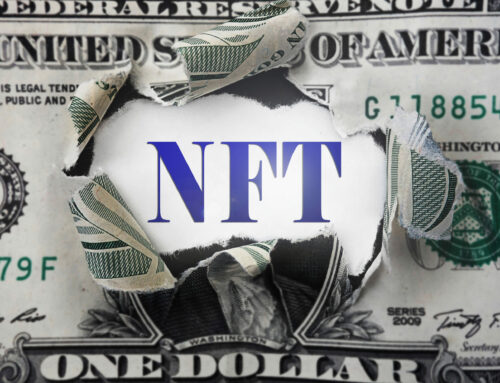"A good foreman officially earns EUR 4,000 net per month and as much again on the side".
This quote, which is sometimes heard, succinctly sums up a problem in the construction industry. Although the big players in the industry have done a great deal in recent years to sharpen their employees' awareness of compliance issues, the construction industry still has the reputation of "doing a lot on the side". Apart from the criminal law aspect, any kind of corruption is, of course, to be condemned in the strongest possible terms. But what can companies really do to counteract this behavior?
In my opinion, the following bundle of measures makes sense:
First; the (semi-)central organization of purchasing. Physical separation makes it more difficult for suppliers to involve all the necessary contacts. Please also review my blog from November, 14th on this topic.
Secondly; the introduction of a 4 eyes principle (engineers + finance managers) in the approval process for orders and invoices. Starting from a value limit to be defined, engineers + finance managers of a higher instance should be involved, with large groups a cascading regulation may be meaningful. At the same time, care should be taken not to overdo it with the release rules. If each invoice is approved by 6 employees from different departments, this leads to a high workload, longer processing times and cash discount losses, but not to more security.
The implementation of the physically separated 4-eyes principle is significantly simplified by the introduction of digital workflows.
Thirdly; regular control, whereby here the baby should not be thrown out with the bathwater. Reality shows that 100% protection through control is impossible. Even in very authoritarian structures, there are always members who manage to perform less well and exploit the system.
Occasional unannounced inspections by a professionally competent auditing department, which is able to recognize and specifically search for irregularities in the interaction between basic material, auxiliary material and hourly consumption (e.g. tile, tile adhesive, laying times), have proven their worth. Important: the revision does not have to be popular, but must be perceived as competent. The auditee must feel that the auditor "knows all the tricks."
Fourth; a good role model by top management. If the employee has the feeling that the boss acquires the orders by legally borderline methods, his inhibition to use such methods or to accept favors from the business partner decreases. This does not mean that a company may not give its long-term business partner (small) Christmas presents or never extend an invitation to dinner. What is important here is appropriateness, which can certainly be communicated to employees. It is obvious to everyone that a managing director with an annual salary of more than EUR 150,000 does not put his job at risk by giving business-damaging orders to the inviting party after a meal in a gourmet restaurant.
Last but not least; my recommendation is to look at certain inclinations of an employee already during the personnel selection. The methods should be thought out by everyone himself. A very experienced manager in the real estate industry once told me that as a final test he likes to invite male candidates to relevant establishments on the occasion of signing a contract or in the course of a promotion. His calculation behind it: "if the employee cheats on his wife, sooner or later he'll probably cheat on me too - in a different way".






That is very attention-grabbing, You are an overly skilled blogger.
I have joined your feed and look ahead to seeking more of your excellent post.
Also, I’ve shared your website in my social networks
Dear gregor-pfeiffer.at administrator, Thanks for sharing your thoughts!
Hi gregor-pfeiffer.at webmaster, Your posts are always well organized and easy to understand.
Dear gregor-pfeiffer.at admin, Keep the good content coming!
To the gregor-pfeiffer.at webmaster, Thanks for the post!
Hi gregor-pfeiffer.at admin, You always provide clear explanations and definitions.
Hi gregor-pfeiffer.at owner, You always provide in-depth analysis and understanding.
To the gregor-pfeiffer.at owner, Your posts are always well written and informative.
Hello gregor-pfeiffer.at administrator, Great job!
Hi gregor-pfeiffer.at webmaster, Thanks for the well-researched and well-written post!
Dear gregor-pfeiffer.at administrator, You always provide clear explanations and step-by-step instructions.
Dear gregor-pfeiffer.at administrator, You always provide great examples and real-world applications.
Hello gregor-pfeiffer.at owner, Keep up the great work!
Hi gregor-pfeiffer.at webmaster, Great job!
To the gregor-pfeiffer.at admin, Thanks for the informative and well-written post!
Dear gregor-pfeiffer.at webmaster, Your posts are always informative and well-explained.
Hello gregor-pfeiffer.at admin, Your posts are always a great source of knowledge.
Hello gregor-pfeiffer.at administrator, Your posts are always well-supported by research and data.
Dear gregor-pfeiffer.at admin, Thanks for the informative and well-written post!
Hi gregor-pfeiffer.at webmaster, Your posts are always well-written and easy to understand.
Dear gregor-pfeiffer.at owner, Your posts are always informative and well-explained.
Dear gregor-pfeiffer.at administrator, Your posts are always well-supported and evidence-based.
Hi gregor-pfeiffer.at administrator, Your posts are always well-supported by facts and figures.
To the gregor-pfeiffer.at webmaster, You always provide in-depth analysis and understanding.
Hello gregor-pfeiffer.at admin, Your posts are always well-balanced and objective.
Hi gregor-pfeiffer.at admin, Your posts are always well written.
Dear gregor-pfeiffer.at webmaster, You always provide useful links and resources.
Dear gregor-pfeiffer.at Owner, similar below: Link Text
Hi gregor-pfeiffer.at Admin, same right here: Link Text